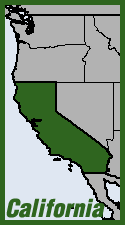 With results coming in from the California elections, the media are projecting defeat for Proposition 19. Attorney General Jerry Brown is projected to become the next governor, holding a wide lead over Republican Meg Whitman. In the race for attorney general, Los Angeles District Attorney Steve Cooley, a Republican who calls for the "eradication" of cannabis dispensaries, appears to have defeated Democrat Kamala Harris, San Francisco's district attorney.
With results coming in from the California elections, the media are projecting defeat for Proposition 19. Attorney General Jerry Brown is projected to become the next governor, holding a wide lead over Republican Meg Whitman. In the race for attorney general, Los Angeles District Attorney Steve Cooley, a Republican who calls for the "eradication" of cannabis dispensaries, appears to have defeated Democrat Kamala Harris, San Francisco's district attorney.
Voters in at least two cities seem to be overwhelmingly approving local measures to tax marijuana sales. In Sacramento, Measure C appears on its way to an easy victory. Measure C will allow the city to impose taxes of up to 5% on existing cannabis dispensaries, and would allow a 10% tax on any recreational cannabis businesses that could have opened under Prop 19. In Rancho Cordova, where the City Council has expressly forbidden any cannabis shops, voters are backing Measure H, which would impose taxes of up to 15% on any cannabis outlets that open in the city in the future. Rancho Cordova's Measure O, which would impose steep taxes on personal cultivation, also seems headed for victory. Similar measures in the East Bay municipalities of Oakland, Berkeley and Albany are also leading.
In Oakland's mayoral race, State Senate President Pro Tem Don Perata is leading city councilmembers Jean Quan and the pro-cannabis Rebecca Kaplan. (Sacramento Bee, San Jose Mercury News, San Jose Mercury News, Los Angeles Times, San Francisco Chronicle, High Times, Nov. 2)







Comments
County-by-county breakdown on Prop 19 vote
This map at the California Secretary of State website shows that Prop 19 was defeated in almost every county in the state—including all those that make up the Emerald Triangle (the core area of Humboldt, Mendocino and Trinity, as well as Shasta, Siskiyou, Del Norte and Lake). It passed only in the more progressive areas of the Bay Area (San Francisco, Alameda, Marin and San Mateo), in two counties adjoining the Bay Area on the north and south (Sonoma and Santa Cruz), in the Central Coast (Monterey, SLO and Santa Barbara) and, strangely, two remote counties along the Nevada border (Alpine and Mono).
It failed in the more conservative areas of the Bay Area: Contra Costa, Solano, Napa and Santa Clara. That's not too surprising. It is more surprising that it failed in the Triangle—a testament to how thoroughly the economy there is dependent on cannabis (its price inflated by its illegality), now that most of the timber has already been cut...